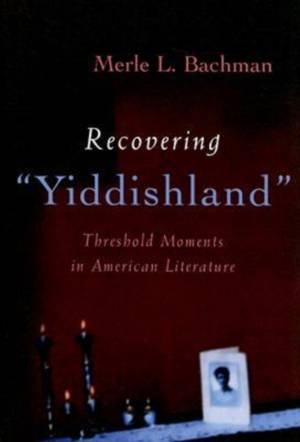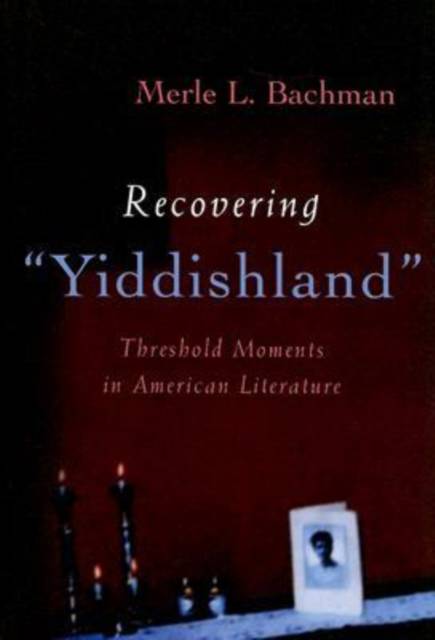
- Afhalen na 1 uur in een winkel met voorraad
- Gratis thuislevering in België vanaf € 30
- Ruim aanbod met 7 miljoen producten
- Afhalen na 1 uur in een winkel met voorraad
- Gratis thuislevering in België vanaf € 30
- Ruim aanbod met 7 miljoen producten
Zoeken
€ 50,95
+ 101 punten
Omschrijving
According to traditional narratives of assimilation, in the bargain made for an American identity, Jews freely surrendered Yiddish language and culture. Or did they? Recovering "Yiddishland" seeks to "return" readers to a threshold where Americanization also meant ambivalence and resistance. It reconstructs "Yiddishland" as a cultural space produced by Yiddish immigrant writers from the 1890s through the 1930s, largely within the sphere of New York.
Rejecting conventional literary history, the book spotlights "threshold texts" in the unjustly forgotten literary project of these writers--texts that reveal unexpected and illuminating critiques of Americanization. Merle Lyn Bachman takes a fresh look at Abraham Cahan's Yekl and Anzia Yezierska's Hungry Hearts, tracing in them a re-inscription of the Yiddish world that various characters seem to be committed to leaving behind. She also translates for the first time Yiddish poems featuring African-Americans that reflect the writers' confrontation with their passage, as Jews, into "white" identities. Finally, Bachman discusses the modernist poet Mikhl Likht, whose simultaneous embrace of American literature and resistance to assimilating into English marked him as the supreme "threshold" poet. Conscious of the risks of any postmodern--"post-assimilation"--attempt to recover the past, Bachman invents the figure of "the Yiddish student," whose comments can reflect--and keep in check--the nostalgia and naivete of the returnee to Yiddish.Specificaties
Betrokkenen
- Auteur(s):
- Uitgeverij:
Inhoud
- Aantal bladzijden:
- 356
- Taal:
- Engels
- Reeks:
Eigenschappen
- Productcode (EAN):
- 9780815631514
- Verschijningsdatum:
- 1/02/2008
- Uitvoering:
- Hardcover
- Formaat:
- Genaaid
- Afmetingen:
- 162 mm x 236 mm
- Gewicht:
- 630 g

Alleen bij Standaard Boekhandel
+ 101 punten op je klantenkaart van Standaard Boekhandel
Beoordelingen
We publiceren alleen reviews die voldoen aan de voorwaarden voor reviews. Bekijk onze voorwaarden voor reviews.











